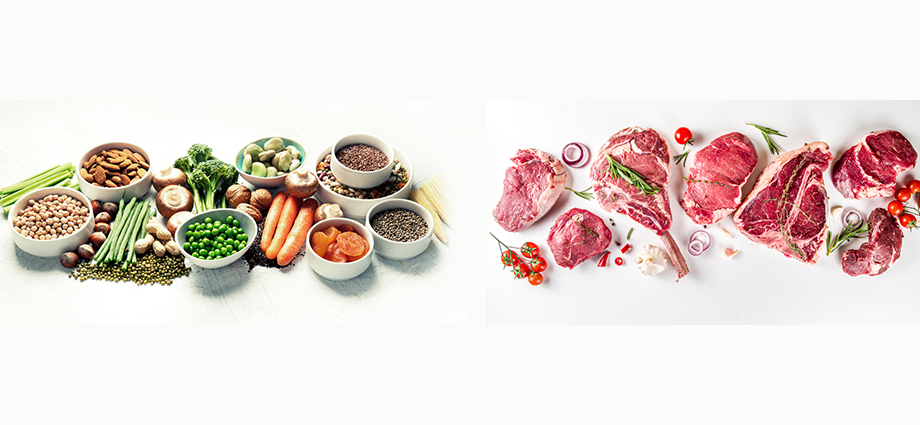In recent culinary history, a profound transformation has unfolded, steering global diets towards the nourishing embrace of plant-based living, accompanied by the parallel surge of plant-based meat alternatives. This transformative shift not only mirrors evolving taste preferences but also signifies a momentous evolution within the food industry. In this exploration, we embark on a journey through the intertwined pathways of plant-based diets and meat alternatives, revealing their symbiotic role in shaping the future of our plates and the culinary landscape.
A Green Revolution on Our Plates: The Flourishing Landscape of Plant-Based Diets
Our narrative begins with the ascent of plant-based diets, transcending the boundaries of niche preferences to emerge as a mainstream choice for health-conscious individuals worldwide. As consumer awareness grows regarding the health benefits of plant-centric diets, the market responds with an eclectic array of plant-based products, creating a ripple effect that extends beyond personal health to influence the broader food industry.
Due to go-green & health consciousness in people lifestyle Plant-Based Diet Market size is expected to hit US $164.6 billion by 2030, Says SNS Insider Research.
Beyond Salad Bowls: The Growth for Plant-Based Alternatives
Simultaneously, the realm of plant-based meat alternatives experiences remarkable growth, fueled by a growing desire for cruelty-free options that align with ethical considerations. Innovations in food technology have paved the way for alternatives replicating the taste and texture of traditional meat, crafted from ingredients such as soy, peas, or mushrooms. As this industry burgeons, it intertwines seamlessly with the plant-based diet trend, sculpting a culinary landscape that effortlessly blends the familiar with the innovative.
The Interconnected Forces of Personal Health and Environmental Harmony
Beyond individual health considerations, the allure of plant-based living extends to a symbiotic relationship with environmental sustainability. Adopting a plant-based diet inherently contributes to a lower carbon footprint, efficient land use, and water conservation. As consumers make choices rooted in health consciousness, they inadvertently become stewards of a more sustainable and responsible approach to food consumption, echoing the global call for eco-friendly practices and harmonizing personal health with planetary well-being.
The Success of Plant-Powered Meat Alternatives
Within the realm of plant-based meat alternatives, companies are seizing opportunities in a growing market by developing innovative products that cater to diverse tastes and preferences. The success of these alternatives extends beyond their cruelty-free nature, embracing their appeal as healthier options. Lower in saturated fat and devoid of cholesterol, plant-based meat alternatives offer a compelling choice for those seeking the sensory experience of meat without compromising their health goals. This success narrative intertwines seamlessly with the broader movement towards plant-powered living.
Mainstream Momentum: A Shift in Consumer Tides
Once considered a niche movement, plant-based living has firmly entrenched itself in mainstream consciousness. This transformation is evident in the expanding shelf space dedicated to plant-based products in supermarkets and the increasing availability of plant-based menu options in restaurants. Consumer attitudes are evolving, and the plant-powered movement is no longer seen as an alternative but as a viable and appealing choice for a diverse range of individuals. This mainstream momentum signals a deeper societal shift towards a more conscious and sustainable approach to food consumption.
Conclusion:
The intertwining paths of plant-based diets and meat alternatives weave a narrative of transformative change. Beyond individual choices, this journey signifies a conscious commitment to a healthier and more sustainable future. As plant-based living takes root in mainstream consciousness, it becomes a powerful force for personal well-being and environmental harmony. The success of plant-based meat alternatives showcases innovation aligned with health goals. In this symbiotic relationship between health and culinary trends, the future of food unfolds—a vibrant, flavorful tapestry where each plate is a conscious choice contributing to a world where well-being and sustainability coalesce in a harmonious celebration of life.





